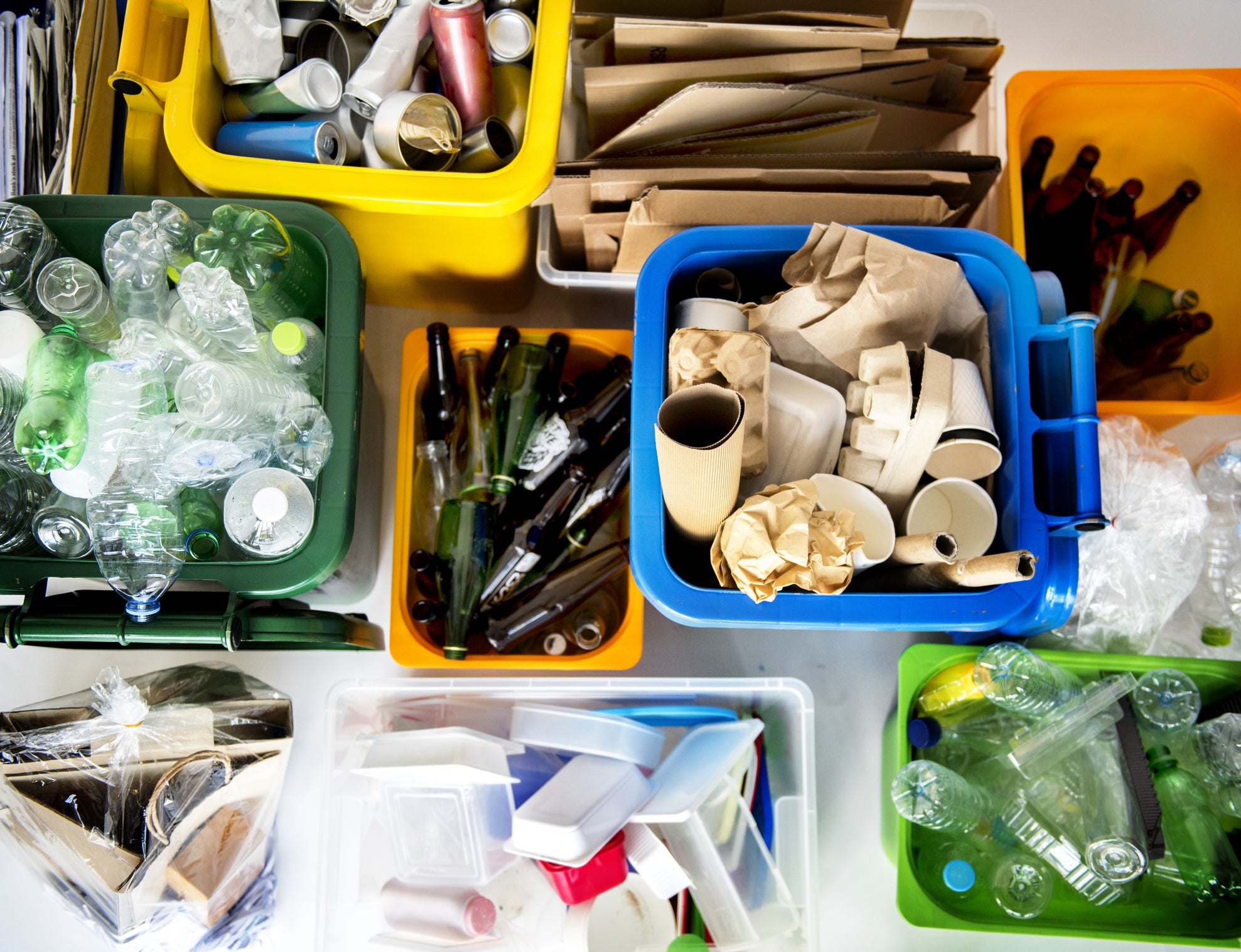
Going Zero Waste at Home
There are too many people consuming too much stuff and throwing said stuff away when they are done with it. Landfills are finite. We cannot endlessly throw things away, because there really is no away. To help preserve landfill space, the only solution is to cut down on solid waste.
According to the EPA, the most common waste is paper and boxes, food, yard trimmings, and plastic. Much of it can be recycled or composted, but recycling rates are much lower than they should be. By recycling, we cut down on the manufacture of these items, which also saves landfill space. Less production equals less consumption equals longer landfill life.
By aiming for zero-waste at home, you will simplify your lifestyle, spend less money, and reduce your carbon footprint. Eliminate one or two things at a time, instead of trying to revamp your life in one weekend!
Start by looking at what you throw away. Any change in habit starts with a keen awareness of the one you want to leave behind. What did you toss today that has an alternative? Packaging? A paper towel or tissue? Holey socks?
Pay attention day after day, and ask yourself:
The obvious place to start is by eliminating single-use plastics. Straws, produce bags, shopping bags, and to-go packaging create a lot of trash.
Instead of buying paper towels, make rags from old T-shirts, towels, and sheets. You can also buy bar rags very inexpensively. Search thrift stores and flea markets for old-fashioned hankies to replace facial tissue. Toilet paper is another disposable paper product, but one not many people want to give up. At least buy recycled TP or consider retrofitting your toilet with a bidet.
Also in the bathroom, buy a compostable toothbrush of natural materials when yours needs replacing. Make your own toothpaste of baking soda, coconut oil, and peppermint oil, and store it in a small jar. You can make laundry soap, body soap, and household cleaners to eliminate the garbage their packaging creates. You may be able to buy bulk using your own container. Check your market or food co-op.
Use an old-school, stainless steel safety razor with refillable blades. For your menses, use organic cotton pads or a menstrual cup. Instead of lotion, use straight olive oil on your skin.
Reduce trash in the kitchen by cooking with fresh, whole ingredients, avoiding processed and packaged foods. Before you compost raw scraps, make soup stock with them. Buy staples in bulk in your own containers. Freeze leftovers or pack a lunch the next day. Compost coffee filters and tea bags. Better yet, get a French press for coffee, and buy bulk tea and use a stainless steel strainer.
Shop at the farmer’s market and bring your own bags. Buy in quantity from local farmers in season, and learn to can, dry, and freeze fresh fruits, vegetables, and herbs. I have written about food waste and solutions in the past.
If this sounds foreign and overwhelming, get some inspiration from Going Zero Waste and Trash is for Tossers. You will find hundreds of ideas and resources for breaking the trash habit.
Adopt the mindset to simplify, shop wisely, and incorporate the 3 R's into your everyday life. Watch your trash disappear!
- Could I have avoided the packaging?
- What can I use instead?
- Can this be recycled or composted?
- Can I repair or upcycle this?
- Buy durable goods that will last a long time.
- Buy only what you need.
- Avoid impulse shopping.
- Buy second-hand items that would have otherwise gone to the landfill.
Would you like to be the first to hear about our new products and more?
Sign up for our Nature’s Path Newsletter.

